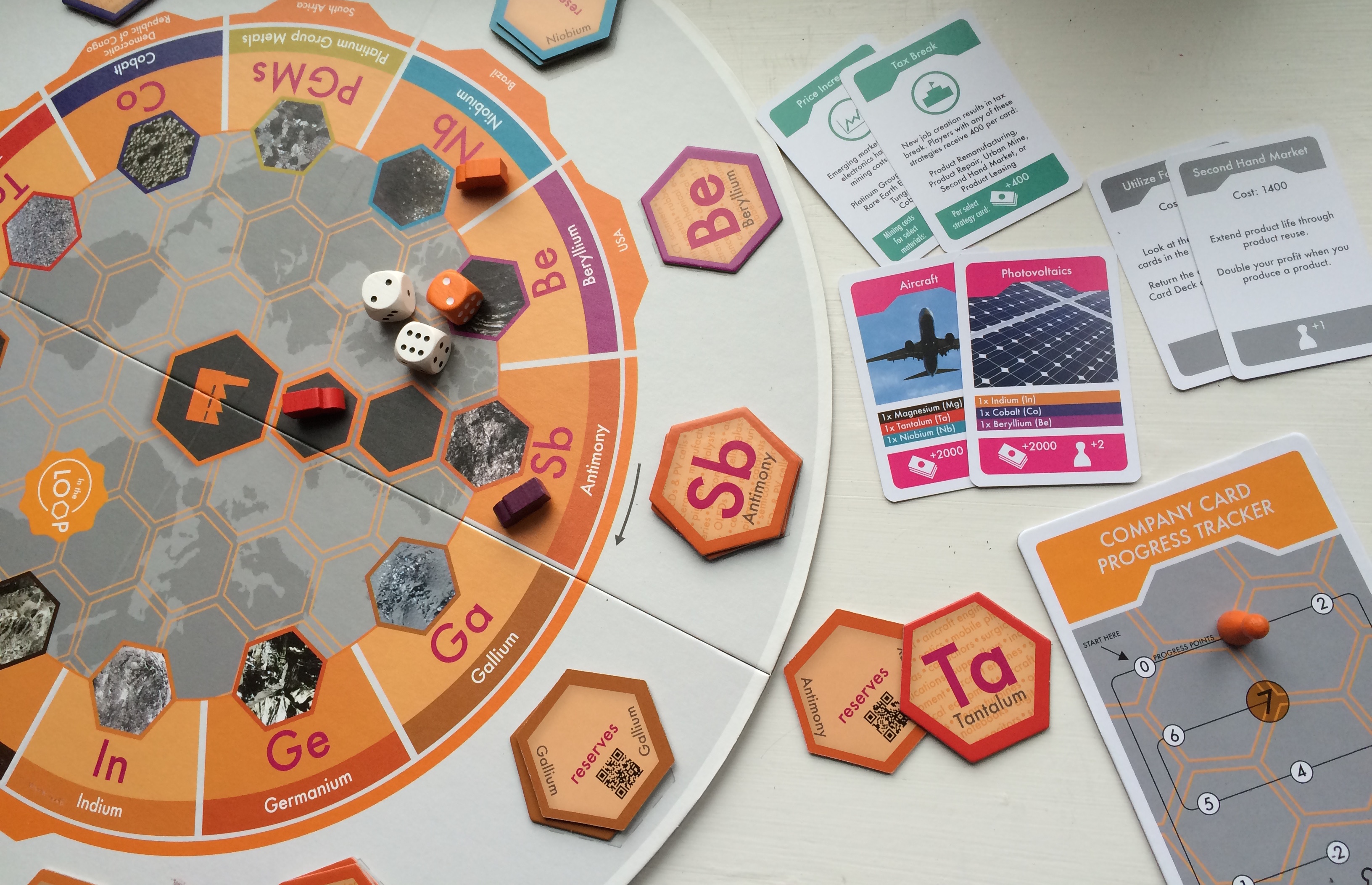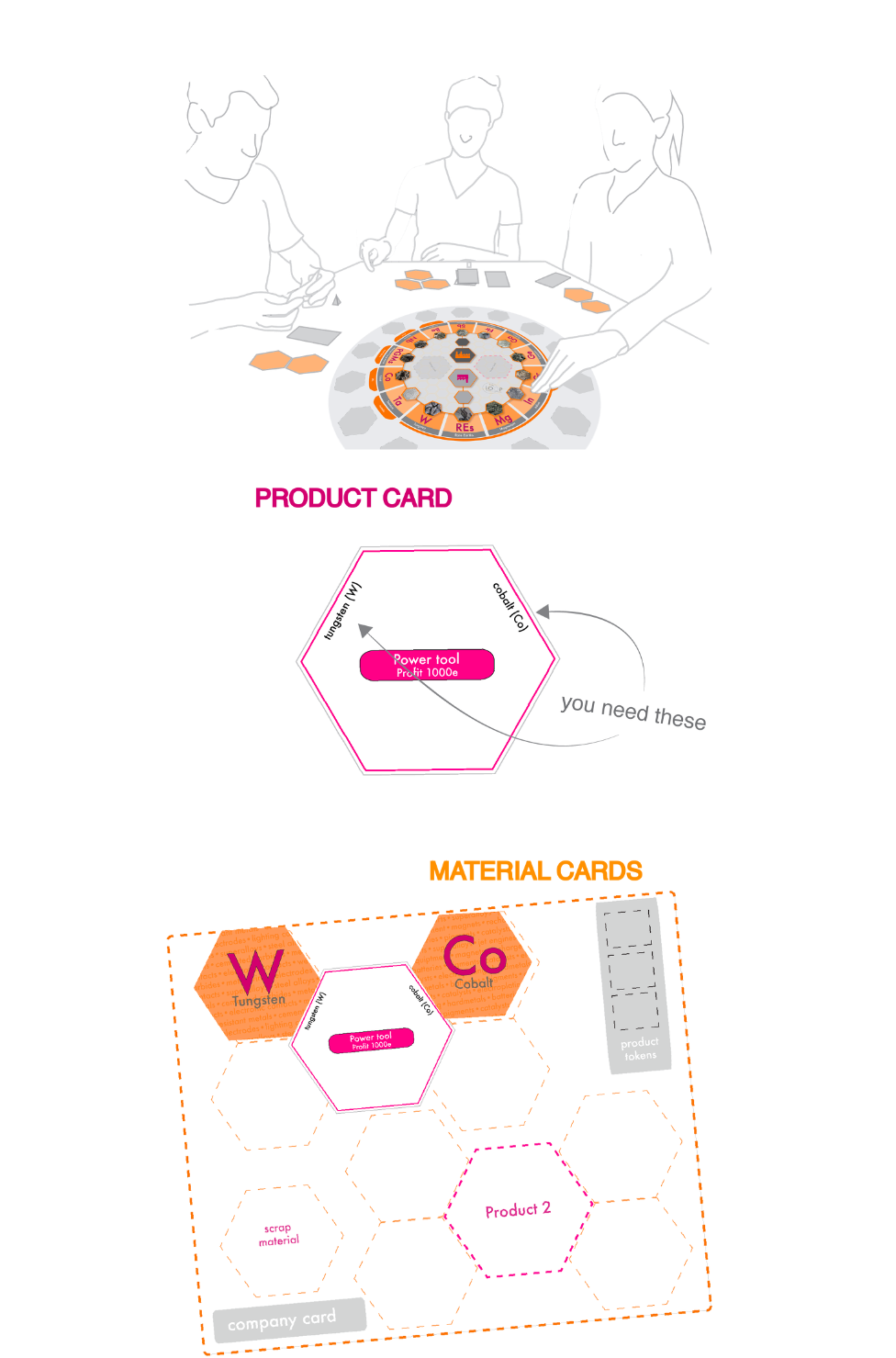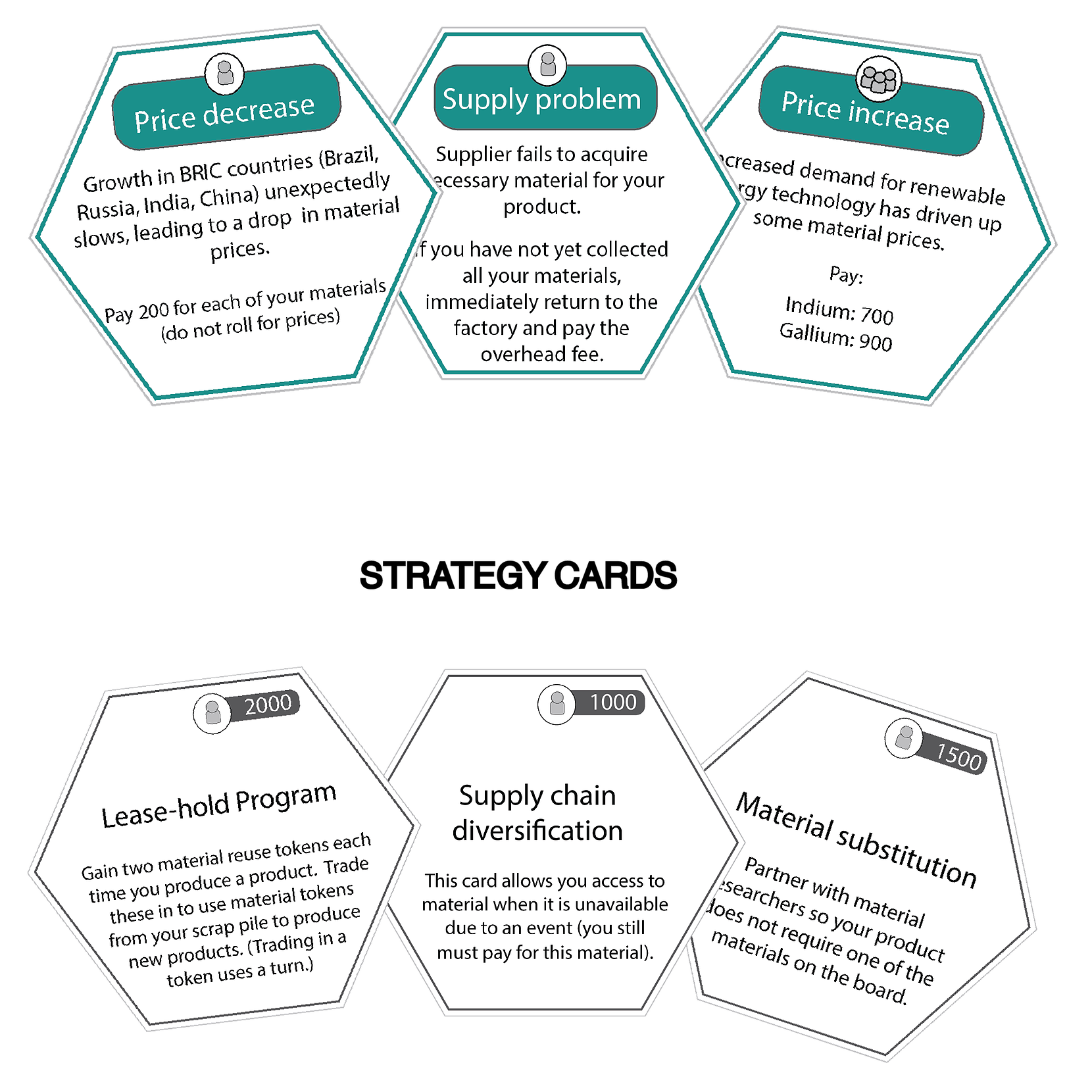Games for Cities
In the Loop (2016)
Delft [NL]
Developed by:
Board game requiring players to collect materials needed to manufacture products, teaching the need for diversifying resource use away from critical raw materials.

In the Loop uses game-based learning to combine multiple approaches into one broader perspective, tying political, economic, environmental and social issues together into one interconnected system. It aims to engage players over the concept of critical raw materials, and make this topic tangible.
Each player is a product-producing company, and moves around the board gathering the materials needed to produce their product – the first player to produce three products wins. However, like in the real world, the future is unknown – ‘random world events’ occur throughout the game and affect your ability to collect materials and make your product. These events range from material price decreases (due to unexpected growth in BRIC countries), and the discovery of new material deposits, to price increases (increased demand for solar technology) and supply-chain disruptions (political tensions).
The only guaranteed way to win is to invest in strategies that can help build resilience against these events, such as: substituting materials, leasing instead of selling, or securing back-up suppliers for your materials. As the game progresses, you’ll notice that competition becomes more and more fierce, as other players are after the same materials as you and there are a limited number of each. The game started as a project on critical raw materials, and is intended to stimulate thinking about new ways of using limited resources.
Designed as an educational tool, physical game components also link to an online materials library where players can find out more information about the materials in the game. The game won ASN Bank’s, ‘Voor de Wereld Van Morgen’ competition in 2015, in the Children and Education category. This is a good example of the way in which games can be used to stimulate thinking around restructuring contemporary, production networks, away from linear networks and towards more circular systems.

